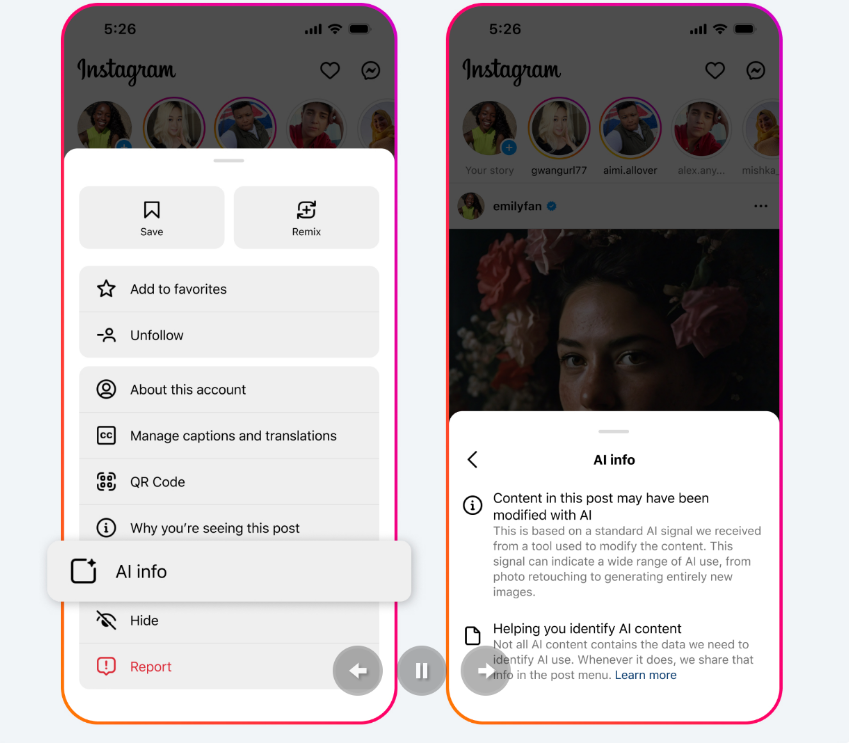Meta is about to make major changes to the way AI content is marked on its Instagram, Facebook and Threads platforms. Starting next week, tags for AI-generated or edited content will move from beneath a user’s name to the post menu. The change was intended to more accurately reflect the extent of AI use on the platform, but it also sparked controversy because hiding labels could increase the risk of users being misled. Meta said the move is based on industry shared signals or user self-disclosure, adding that content generated entirely by AI will retain obvious labels.

This change brings several key points:
1. Tag distinction: Content that is completely generated by AI will still retain obvious tags, while content tags that are only edited by AI will be hidden.
2. Source of transparency: Meta said that labeling of AI-generated content will be based on industry shared signals or user self-disclosure.
3. Reason for the adjustment: The company claims the move is intended to better reflect the extent of artificial intelligence used in content on its platform.
However, this policy adjustment has also caused controversy. Critics point out that hiding AI labels could increase the risk of users being misled, especially as AI editing tools become increasingly advanced.
It is worth noting that this is not the first time Meta has adjusted AI content marking. In July this year, the company changed from artificial intelligence production to artificial intelligence information in response to complaints from photographers that real photos were mislabeled.
Meta’s decision reflects the challenge social media platforms face when dealing with AI content: how to strike a balance between maintaining transparency and optimizing user experience. With the rapid development of generative AI technology, we can expect more relevant policy adjustments in the future.
While Meta's move improves user experience, it also faces challenges of transparency and information accuracy. In the future, how to better balance the two will be a question that all social media platforms need to continue to explore. This adjustment also highlights the complexity brought by the rapid development of AI technology to content supervision and deserves continued attention.